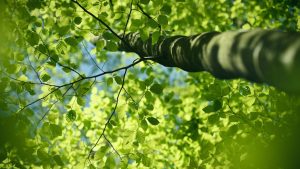
- This event has passed.
Trees of Maine: ID, Ecology and Management, Autumn
October 5, 2024 @ 9:30 am - 12:30 pm
 Immerse yourself in a fall woodland walk and field study celebrating our northeastern forests and learning more about their fragile ecosystems. Wabanahkik (Dawnland), the broader territory that includes the area now known as Maine, consists of a variety of climate conditions that host an assortment of deciduous and coniferous species valuable to thousands of living organisms. We will discuss individual tree species, their ecological roles, cultural values, and management practices that support the health of the living matrix.
Immerse yourself in a fall woodland walk and field study celebrating our northeastern forests and learning more about their fragile ecosystems. Wabanahkik (Dawnland), the broader territory that includes the area now known as Maine, consists of a variety of climate conditions that host an assortment of deciduous and coniferous species valuable to thousands of living organisms. We will discuss individual tree species, their ecological roles, cultural values, and management practices that support the health of the living matrix.
Students will learn from a Maine State District Forester on how to identify many forest trees, the history of the region’s forests, silviculture, pest issues, and our roles as stewards for forest resilience in our changing climate. Tyler Everett, PhD student at UMO School of Forestry, who specializes in research regarding ash trees and the Emerald Ash Borer, will discuss the cultural value of ash trees, the philosophies, and practices of managing them throughout the challenging onset of Emerald Ash Borer that harms the existence of the valuable tree species.
Class Level: All Levels. Suitable for teens 14+.
//
Instructor Bio:
Maine District Foresters, of which there are 8 throughout Maine, are state-employed, highly trained foresters who help landowners identify trees and pests and how to make decisions for best land management practices that fulfill the needs for both healthy forest ecosystems and people. Their services as educators, consultants and land stewards are covered by the state, and are a valuable resource for Mainers to feel equipped and well-informed about the options and regulations around sustainable forest management.
Tyler Everett is a citizen of Mi’kmaq Nation and a forester specializing in forest pests, namely the emerald ash borer (EAB), which is a current threat to cultural resources on Tribal lands in northern forests. Tyler is a PhD student at the University of Maine in Orono where he is engaged in research with the Ash Protection Collaboration Across Wabanakik lab group focusing on the impacts of EAB on Tribal ash resources and identifying innovative management and mitigation strategies for this issue that include an understanding of silviculture, climate change, and most importantly Tribal cultural values.
